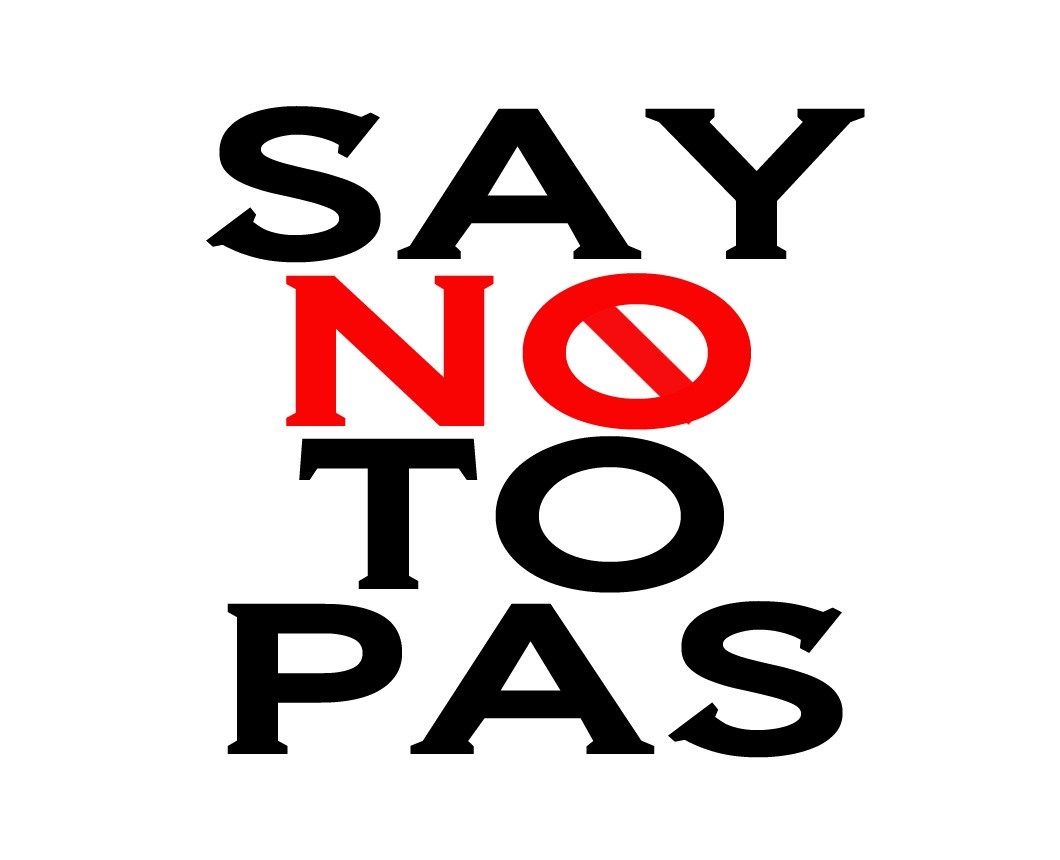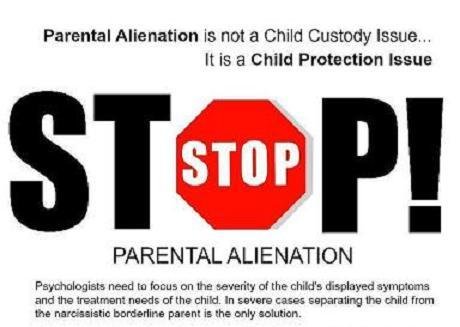
My youngest son was alienated from me and recently tried to argue with me about how I should be ashamed of myself, how they couldn't stand who I am or what I'm about. (they sounded just like the alienating parent)
I'm a faithful person, a minister, an artist, an author, a deliverer of God's message, I'm making history with The Lord writing books for Him. I've created a ministry to reveal God's great works and we've impacted billions of people in a positive way. (What should I be ashamed of?)

Characteristics Of Severely Alienated Children
Severe cases of a child’s irrational alienation from a parent differ from mild and moderate cases by the extent of the child’s rejection of a parent and the degree of negativity in the attitudes and behavior toward the rejected parent. Severely alienated children express extremely polarized views of their parents; they have little if anything positive to say about the rejected parent and often rewrite the history of their relationship to obscure positive elements. They seem content to avoid all contact with the parent, may reject an entire branch of their extended family, and often threaten to defy court orders for contacts with the rejected parent. Severe alienation includes behavioral, emotional, and cognitive dimensions.
Behavioral Impairments
Severely alienated children treat the rejected parent with extreme hostility, disobedience, defiance, and withdrawal. They may resist or refuse contact, vandalize and steal property, threaten and perpetrate violence. A boy told the custody evaluator that he would like to give his father a hard kick between the legs, kill him in his sleep, and have him die a horrible death. Children at the severe end of the continuum of parental alienation typically display such venom. Often these children behave well with all other adults except the rejected parent and people associated with that parent. By contrast, physically abused children fear the abuser and act obsequious, respectful, and compliant so as to avoid angering the parent. Typically they do not openly defy or disrespect the abusive parent. Also, physically abused children often resist separation from the abusive parent and want to be reunited with that parent.
Emotional Impairments
When not treating the alienated parent with open contempt, severely alienated children remain aloof and express no genuine love, affection, or appreciation. They fail to give Mother’s and Father’s Day cards. Rather than express contrition for behavior that far exceeds the bounds of decency and normal behavior, alienated children show no apparent shame or guilt for mistreating a parent. Severe alienation is not a situation, as one attorney argued, where children merely love one parent a lot more than the other parent. These children harbor strong and irrational aversion toward a parent with whom they formerly enjoyed a close relationship. The aversion may take the form of fear, hatred, or both.
Cognitive Impairments
The child’s thoughts and statements about the rejected parent usually reflect trivial, shallow, and inauthentic complaints, often in words that echo the favored parent despite the child’s claim that the words are his own. In some cases, when trivial complaints fail to accomplish the goal of severing contact with a parent, favored parents and children lodge accusations of abuse.
Alienated children’s thoughts about their parents become highly skewed and polarized. They seem unable to summon up positive memories or perceptions about the rejected parent, and have difficulty reporting negative aspects or experiences with the favored parent. They rewrite the history of their relationship with the rejected parent to erase pleasant moments. By contrast, physically abused children often try to maintain a positive image of the abusive parent. They cling to positive memories of being nurtured by, and having fun with, their abuser.
With children who are severely and irrationally alienated, critical thinking about parents is nowhere in evidence. Instead the children demonstrate knee-jerk support of the favored parent’s position in any situation where the parents disagree. Some children ask to testify against a parent in court, or to speak with the judge to lobby for their favored parent’s position in the litigation. One of the most pernicious signs of unreasonable alienation is what I call hatred by association—the spread of hatred to people and even objects associated with the rejected parent, such as members of the extended family, therapists, and pets.
Children in these situations learn to curry favor with one parent by echoing that parent’s complaints about the other parent. They learn that it displeases one parent when they show signs of connection and affection with the other parent. Often they refer to the rejected parent by first name or with a term of derision, rather than as Mom or Dad. Although others see clearly that a child’s negative attitude toward one parent developed in the shadow of the other parent’s hostility, the alienated child disavows any such influence. Instead the child blames the rejected parent and relatives for provoking the child’s hatred, but the child often gives vague reasons for the rejection.

The alienating parent pushing all this sort of stuff onto their child that is both immoral and unethical, they should be ashamed of themselves. I cannot understand how any person can harm their children in such a terrible way and think nothing of it. (as if its someone else's fault of something) Parents, love your children. Give them the right to love both parents. Stand up for what is right! #StopParentalAlienation #StopChildAbuse
http://www.warshak.com/pub…/what-is-parental-alienation.html
Hi! I am a robot. I just upvoted you! I found similar content that readers might be interested in:
http://www.warshak.com/publications/what-is-parental-alienation.html
Downvoting a post can decrease pending rewards and make it less visible. Common reasons:
Submit
Hello @iamjamesmartinez,
We Love You and What You Do Here.
Thank you for posting this to the STEEM Network.
We have some statistics about your account, very interesting.
Average Votes Per Post: 2.65
Average Replies Per Post: 1.45
Average Post Word count: 634.3
Follow us for for more information. Show Your Supprt for @WeLoveYou by Delegating STEEM Power, with one of these handy links, select a level 1SP, 5SP, 10SP, 100SP, or Donate to Help Support
Smooth Posting,
@WeLoveYou.
We can also resteem and upvote more of your posts
Learn More, Read Our Introduction
If your reputation is lower than 30 resteeming with @WeLoveYou only costs 0.001 SBD
Downvoting a post can decrease pending rewards and make it less visible. Common reasons:
Submit